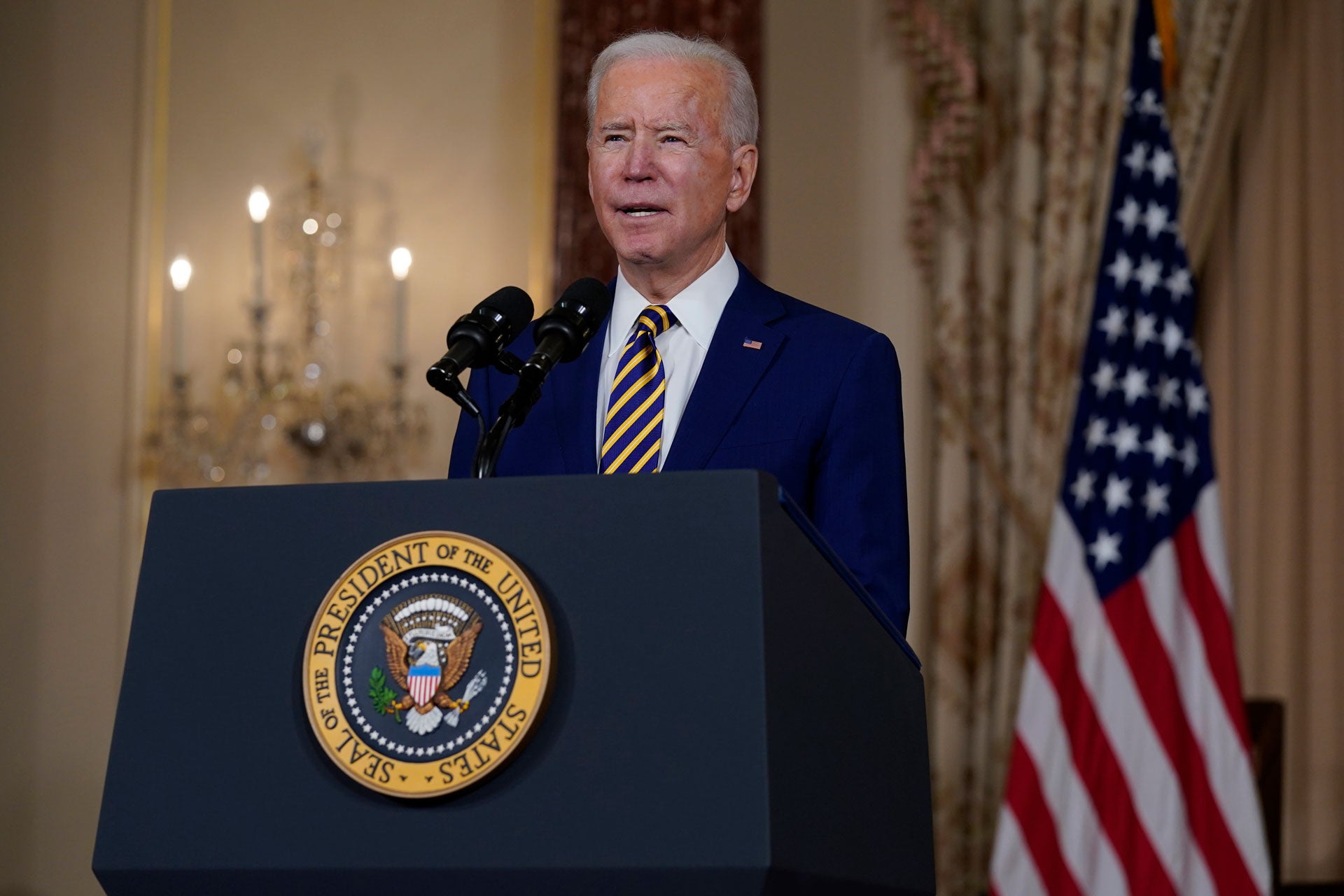A Human Rights Review of Biden's Foreign Policy Speech

After four years of watching former United States President Donald Trump cozy up to friendly autocrats, it was heartening to hear President Joe Biden vow to stand up for democracy and human rights around the world. Human rights were central to the vision he articulated in declaring that “America is back.” He promised to stand up to the Chinese government’s global attacks on human rights, to push the Russian government to release Alexei Navalny, and to impose “consequences” for the military coup in Myanmar. He also connected the defense of human rights at home to the effectiveness of US promotion of human rights abroad. In his biggest policy announcement, he said the US government would end support for offensive operations in Yemen. That’s an important step, given the Saudi-led coalition’s disturbing pattern of using US precision weapons and intelligence to hit Yemeni civilian targets such as markets, funerals, and even a school bus. Trump closed his eyes to all that in the name of (illusory) US jobs. Biden rightfully will have nothing to do with it. Biden noted that the US government would continue to help Saudi Arabia to defend itself from missile and drone attacks. But he didn’t address other abuses by one-time members of the Saudi-led coalition, such as the United Arab Emirates, which has been supporting highly abusive forces in Libya.
The US government should have nothing to do with that, either. Biden addressed the importance of alliances and partnerships. While Trump largely abandoned the defense of human rights, other governments came to the fore—Latin American democracies on Venezuela, the Organization of Islamic Cooperation for Rohingya Muslims, various Western governments on China, Saudi Arabia, and Syria, among others. Arguably, the defense of human rights is more powerful today than four years ago because it is more genuinely global.
The US government’s task is to join that multilateral effort, not supplant it. Despite Biden’s rightful endorsement of international institutions, he left two key human rights bodies dangling. He trumpeted the US government’s rejoining of the Paris Climate Agreement and its re-embrace of the World Health Organization but said nothing about re-engaging with the United Nations Human Rights Council, which Trump abandoned, or lifting Trump’s outrageous sanctions on the International Criminal Court, an affront to the rule of law. With the UN Security Council often stymied by the Russian and Chinese vetoes, the Human Rights Council has frequently been the most important source of multilateral pressure on highly abusive governments. And the International Criminal Court—which just hours before Biden’s speech convicted a notorious commander of Uganda’s brutal Lord’s Resistance Army—represents an international commitment to fight impunity for mass atrocities. For the US government to join with its democratic partners in defending human rights, re-engaging with these two core human rights institutions should be a central part of the plan.
Read the full article at the original website
References:
